
ICAS Bulletin (online ISSN 2836-3418, print ISSN 2836-340X) is published every other week throughout the year at 1919 M St NW, Suite 310, Washington, DC 20036.
The online version of ICAS Bulletin can be found at chinaus-icas.org/bulletins/.
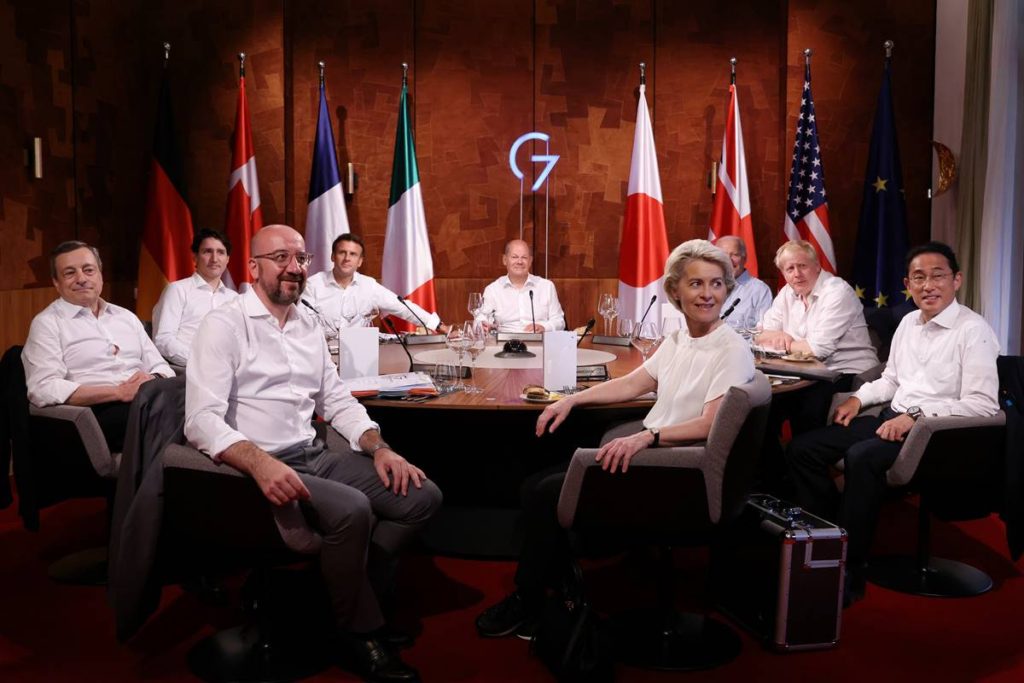
– On June 29, NATO leaders declared China a “strategic challenge”and outlined plans to deploy thousands of new troops in eight countries on its eastern flank. China’s ambassador to the United Nations Zhang Jun condemned the move, saying “now Nato has extended its tentacles to the Asia-Pacific.”
– On June 27, Taiwan’s top trade negotiator, John Deng, met with deputy U.S. trade representative Sarah Bianchi to discuss the US-Taiwan Initiative on supporting Taiwanese agriculture and digital economy, which has lost consumers in mainland China over political disputes.
– South Korea joined the US-led Minerals Security Partnership to satisfy needs on rare earth reserves and to cut its dependency on China for key resources.
– On June 26, G7 leaders launched the Partnership for Global Infrastructure with $600 billion to strengthen partnerships with developing countries, countering China’s Belt and Road Initiative.
– U.S. President Biden announced that the U.S. would mobilize $200 billion in the next five years via grants, federal financing, and leveraging private sector investments, in collaboration with the Commerce Department, Export-Import Bank, USAID, and other relevant stakeholders.
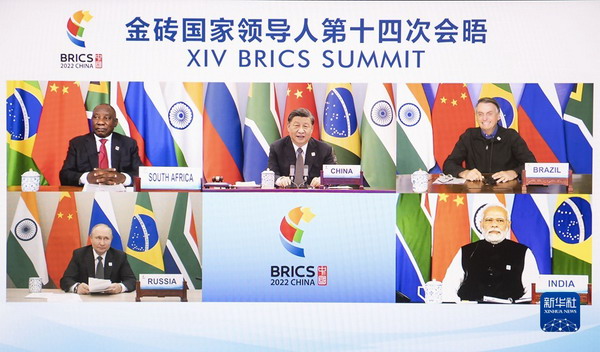
– On June 29, the Chinese Ministry of Finance announced an extension of tariff exemptions on some imported products from the United States until Feb. 15 next year.
– On June 26, the U.S. Commerce Department added five Chinese companies to a trade blacklist for allegedly supporting Russia’s military and defense industrial base. Chinese foreign ministry spokesman Zhao Lijian neither confirmed nor denied the accusations, but repeated China’s opposition to U.S. sanctions on Russia on the following day.
– People’s Bank of China pledged to extend currency trading hours and vowed to further open up the financial market as part of its internationalization push to increase global investor participation in onshore currency trading.
– Despite the West’s efforts to isolate Russia and upending the global oil markets, China and India continue to buy Russian crude oil with the demand from their enormous domestic markets and the supplies from their vast refineries.
– Chinese leader Xi Jinping criticized sanctions as “weaponizing” the global economy and urged countries to “embrace solidarity and coordination” while touting China’s new development and security initiatives as blueprints.

– On July 3, Chinese Foreign Minister Wang Yi pledged to continue fostering friendly ties and bolster economic relations while meeting Myanmar’s Foreign Minister U Wunna Maung Lwin, who showed firm support for China’s positions on Taiwan, Hong Kong, Tibet, and Xinjiang.
– The U.S. and Australia, along with three countries, launched the Partners in the Blue Pacific with $2.1 billion to assist Pacific Island countries in tackling issues such as climate change, illegal fishing, and forge closer diplomatic relations, as efforts to counter China’s rising influence and maritime aggression in the region.
– Pacific Islands Forum leaders looked to exclude the United States, China and several other major countries from its upcoming mid-July meeting in Suva to avoid geostrategic competition buffeting the region.
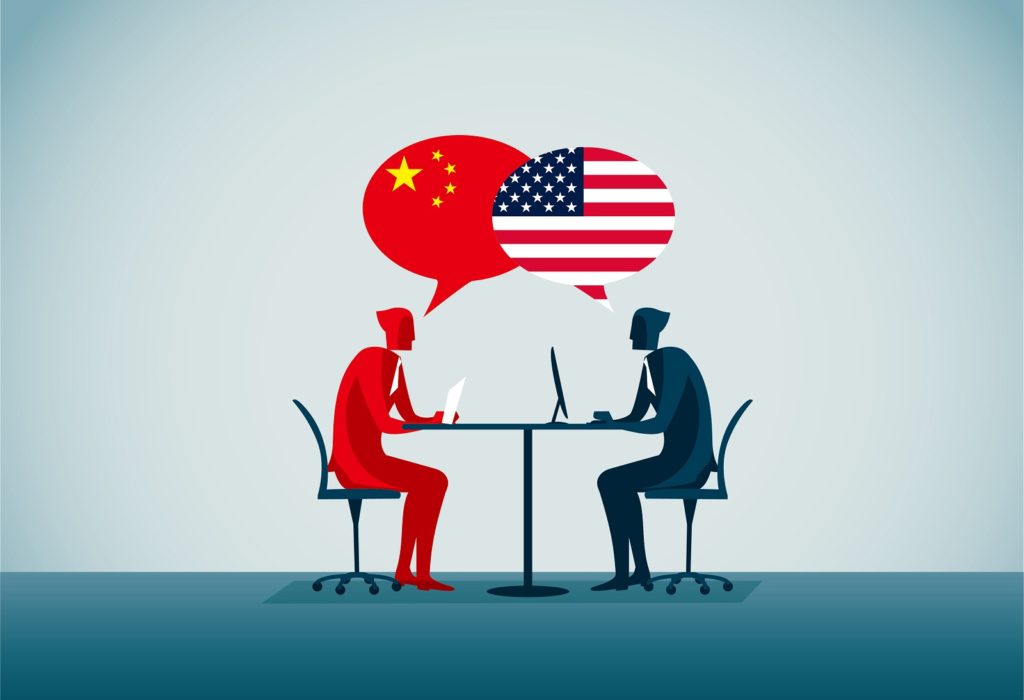
– On July 5, Chinese Vice Premier Liu He and U.S. Treasury Secretary Janet Yellen held a virtual meeting to discuss the American tariffs on Chinese goods and the stability of global supply chains.
– U.S. Trade Representative Katherine Tai claimed tariffs on Chinese goods as “a significant piece of leverage” and removing them has “a limited effect on short-term inflation.”
– On June 21, the U.S. banned all goods produced in China’s western Xinjiang region under the Uyghur Forced Labor Prevention Act to condemn human rights abuses towards Uyghurs and other ethnic and religious minorities. The Chinese Ministry of Commerce called it a “typical example of economic coercion” that “gravely hurts the interests of companies and consumers in both countries.”
– Compliance experts and companies will now need to take a multipronged approach to abide by the Uyghur Forced Labor Prevention Act, such as sourcing products from other countries and visiting Chinese suppliers for spot checks.

– The U.S. Commerce Department’s Bureau of Industry and Security enforced regulations to keep sensitive U.S. technology out of the hands of geopolitical rivals by imposing bigger fines on companies that mishandle restricted technology and pouring resources into investigating the most serious violations.
– Chinese satellites have demonstrated the capability to evade and monitor a U.S. surveillance satellite, causing experts to advocate for new norms as the space powers increasingly play cat-and-mouse games in orbit.
– On June 23, a bipartisan group of U.S. senators introduced legislation to protect Americans’ sensitive personal information from being sold or transferred to high-risk foreign countries, including China, for national security concerns.
– U.S. Defense Innovation Unit chief Michael Brown addressed the need to introduce much more cutting-edge, off-the-shelf commercial technology to keep up with the growing threat from China.
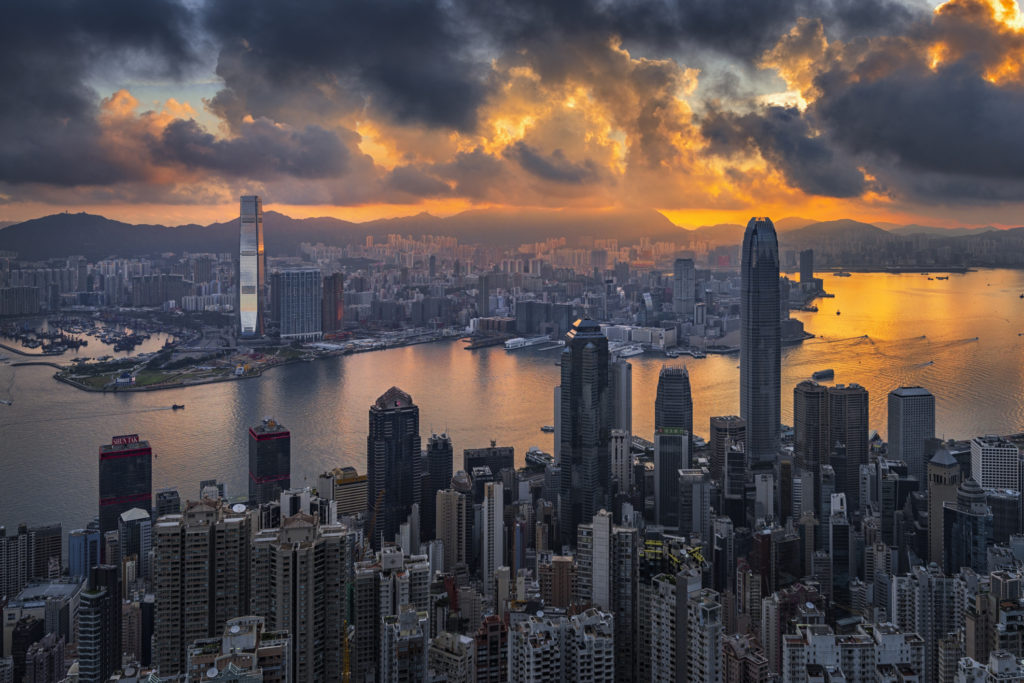
“China Says US Must Face Climate Duties Despite Court Ruling”, Asia Financial, July 1
“China marks Hong Kong handover anniversary, as doubts hang over city”, The Washington Post, June 30 [Paywall]
“China throws media shield around Xi’s visit to Hong Kong”, CNN, June 29
“Biden aims at China in new illegal fishing policy framework”, AP News, June 28
“China inflation: Li Keqiang says ‘prudent’ economic policy, bumper wheat harvest leaves room to tackle risks”, South China Morning Post, June 22 [Paywall]
“Taiwan’s GlobalWafers to Build $5 Billion Chip Plant in Texas”, Bloomberg, June 27 [Paywall]
“China inflation: Li Keqiang says ‘prudent’ economic policy, bumper wheat harvest leaves room to tackle risks”, South China Morning Post, June 22 [Paywall]
“China analyst urges possible attacks on Elon Musk’s Starlink satellites”, New York Post, June 22
“COP15: Canada to replace China as venue for UN biodiversity summit”, New Scientist, June 20
June 23 hosted by the Brookings Institution
June 27 hosted by American Enterprise Institute
June 30 hosted by the US-China Business Council
June 30 hosted by the US-China Business Council
July 8 hosted by the Atlantic Council
July 14 hosted by China Institute, University of Alberta
July 14 hosted by the Center for Strategic and International Studies
July 19 hosted by the Center for Strategic and International Studies
July 21 hosted by SupChina
Sourabh Gupta speaks at the 19th China-U.S. Young Leaders Dialogue
On June 28-29, Senior Fellow Sourabh Gupta appeared at the CIIS’ 19th China-U.S. Young Leaders Dialogue in Session I: 50 Years since China-U.S. Breaking the Ice. The topic of his presentation was the Shanghai Communique’s relevance in the age of U.S.-China strategic competition.
The 8th Ocean Dialogue: 40th Anniversary of UNCLOS: Promoting Maritime Cooperation in Southeast Asia
Tuesday, June 29, 2022
8:30am – 5:10pm Hanoi
On June 29, 2022, ICAS Executive Director Dr. Nong Hong participated in the 8th Ocean Dialogue- 40th Anniversary of UNCLOS: Promoting Maritime Cooperation in Southeast Asia. She spoke about the BBNJ Negotiation in the Context of the South China Sea and shared her research findings on regional and state practices of area-based management.
Learn more about the event and the other speakers through the link on the right.
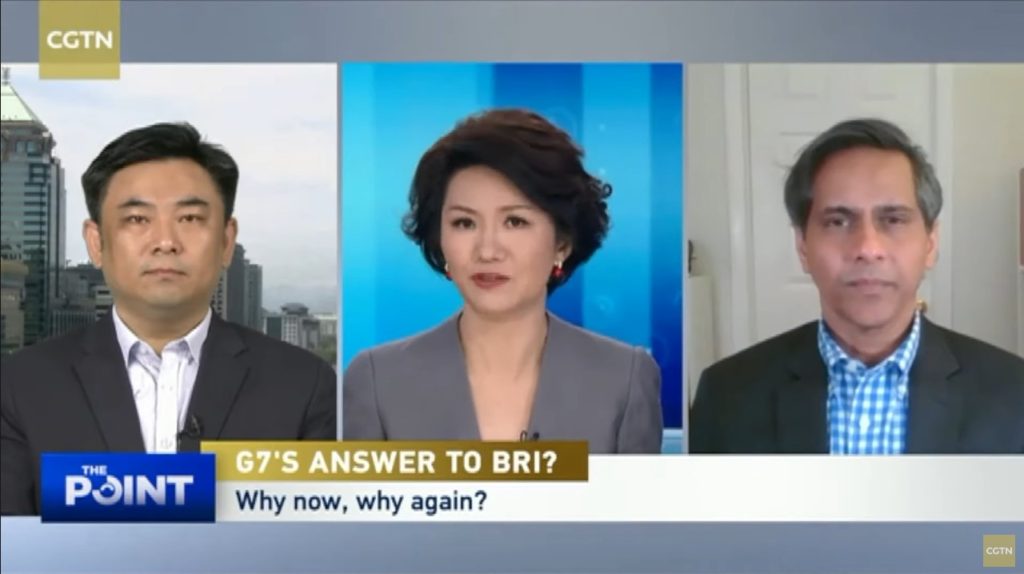
On Tuesday, July 5, 2022, Senior Fellow Sourabh Gupta was quoted by China Daily on the G7’s Partnership for Global Infrastructure and Investment.
On Wednesday, June 29, 2022, Senior Fellow Sourabh Gupta discussed the G7’s new infrastructure initiative on CGTN’s The Point with Liu Xin.

The Institute for China-America Studies is an independent nonprofit, nonpartisan research organization dedicated to strengthening the understanding of U.S.-China relations through expert analysis and practical policy solutions.
1919 M St. NW Suite 310,
Washington, DC 20036
icas@chinaus-icas.org
(202) 968-0595
© 2025 INSTITUTE FOR CHINA-AMERICA STUDIES. ALL RIGHTS RESERVED.